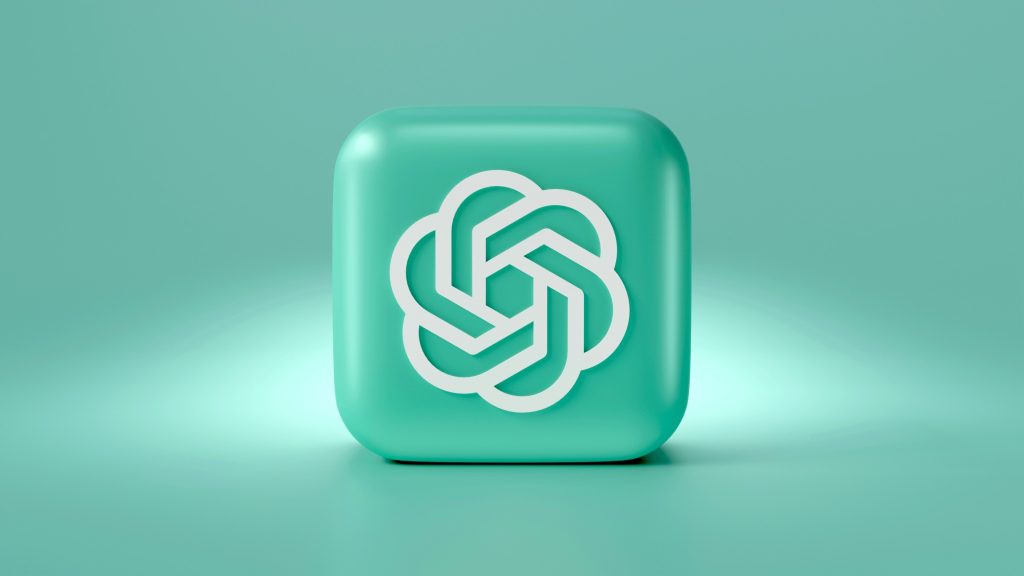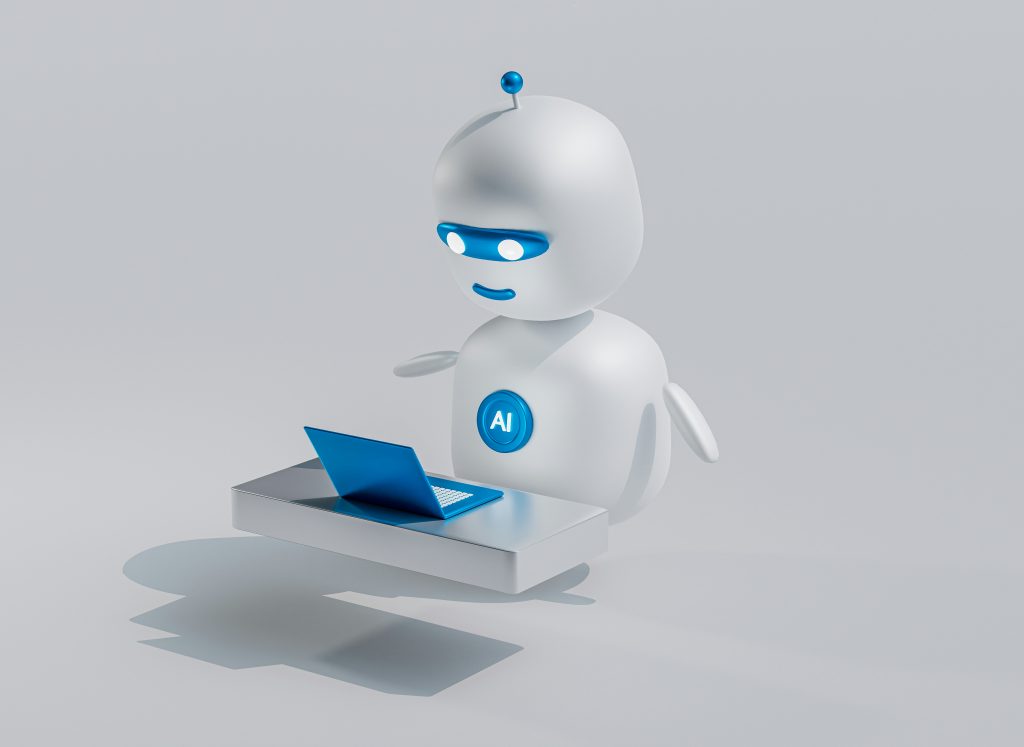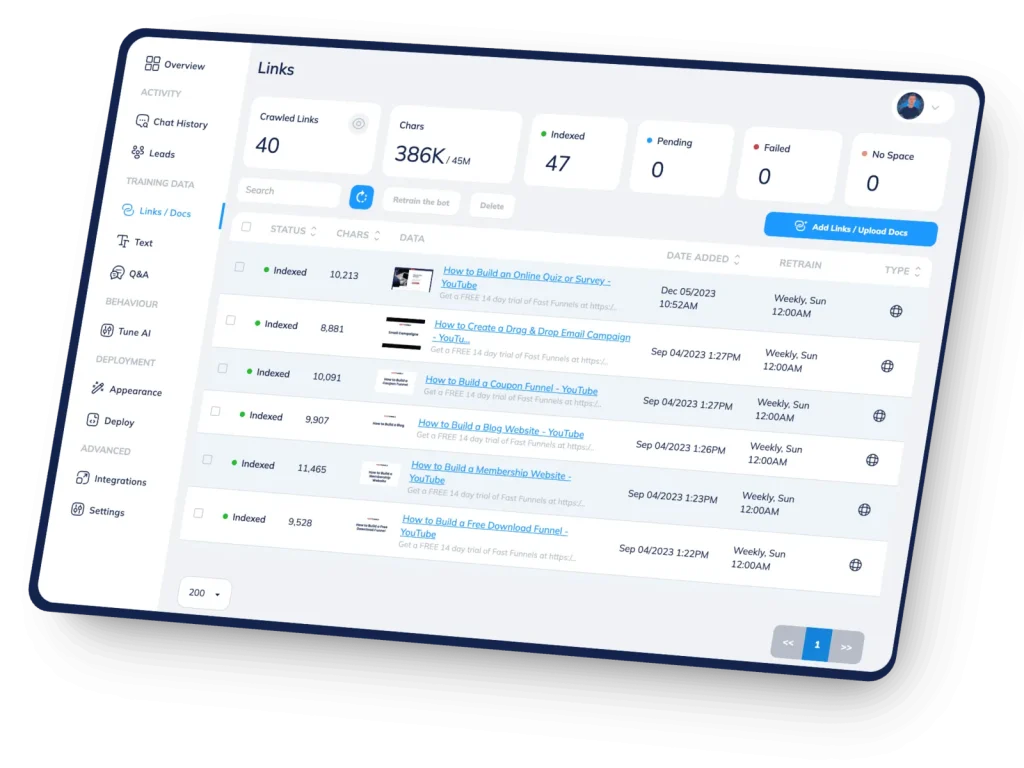Local businesses face unique challenges in today’s digital marketplace. From competing with large corporations to managing limited marketing budgets, small and medium enterprises need every advantage they can get. Enter AI chatbots—a game-changing technology that’s leveling the playing field and helping local businesses generate more leads, convert prospects into customers, and scale their operations efficiently.
In this comprehensive guide, we’ll explore how AI chatbots are transforming local business operations, backed by real case studies and actionable insights. Whether you’re running a restaurant, dental practice, retail store, or service-based business, you’ll discover how implementing the right AI chatbot strategy can dramatically boost your bottom line.
The Local Business Challenge: Why Traditional Marketing Falls Short
Local businesses operate in a unique ecosystem where personal relationships, community trust, and immediate service delivery are paramount. However, traditional marketing approaches often fall short in today’s always-connected world:
- Limited availability: Most local businesses operate during standard business hours, missing potential customers who browse and research outside these times
- Resource constraints: Small teams can’t provide 24/7 customer support or handle multiple inquiries simultaneously
- Lead qualification bottlenecks: Without proper systems, valuable leads slip through the cracks or receive delayed responses
- Competition from larger players: National chains and online retailers have resources for extensive customer service teams and marketing automation
These challenges create a perfect storm where local businesses struggle to capture, nurture, and convert potential customers effectively. This is where AI chatbots become a strategic differentiator.
What Makes AI Chatbots Perfect for Local Businesses?
AI chatbots represent a paradigm shift in how local businesses can interact with their community. Unlike traditional static websites or basic contact forms, modern AI chatbot platforms like Botpulse offer sophisticated automation that feels personal and responsive.
Key Advantages for Local Businesses:
24/7 Availability: Your chatbot never sleeps, capturing leads and answering questions when your physical location is closed. According to Salesforce research, 64% of consumers expect real-time assistance, regardless of the time of day.
Instant Response Time: While competitors might take hours or days to respond to inquiries, your AI chatbot provides immediate engagement, dramatically improving conversion rates.
Cost-Effective Scaling: Instead of hiring additional staff to handle customer inquiries, chatbots allow you to scale customer interactions without proportional increases in labor costs.
Personalized Local Experience: Modern chatbots can be programmed with local knowledge, business-specific information, and community context that resonates with your target audience.
Multi-Channel Presence: The best AI chatbot for eCommerce and local businesses operates across your website, social media, and messaging platforms like WhatsApp, meeting customers where they already spend time.
The Lead Generation Powerhouse: How AI Chatbots Capture and Qualify Prospects
1. Proactive Engagement
Traditional websites rely on visitors to take action—fill out a contact form, call a phone number, or send an email. AI chatbots flip this dynamic by proactively engaging visitors within seconds of their arrival.
Example Implementation: A local fitness studio’s chatbot greets website visitors with: “Hi! Looking to get fit this year? I can help you find the perfect membership plan and even schedule a free consultation. What are your fitness goals?”
This proactive approach can increase lead capture rates by up to 300% compared to passive contact forms, according to Drift’s State of Conversational Marketing report.
2. Intelligent Lead Qualification
Not every website visitor is ready to buy, but AI chatbots excel at identifying and prioritizing qualified leads through strategic questioning and behavior analysis.
Qualification Framework:
- Budget assessment: “What’s your budget range for this service?”
- Timeline identification: “When are you looking to get started?”
- Decision-making authority: “Are you the person who makes purchasing decisions?”
- Specific needs analysis: “What’s your biggest challenge with [relevant problem]?”
3. Immediate Value Delivery
The most effective lead generation chatbots provide immediate value before asking for contact information. This could include:
- Instant quotes or estimates
- Appointment scheduling
- Product recommendations
- Educational content or tips
- Exclusive local offers or discounts

Case Study 1: Local Restaurant Increases Online Orders by 180%
Business: Maria’s Authentic Mexican Cuisine, a family-owned restaurant in Austin, Texas
Challenge: Despite having loyal local customers, Maria’s struggled with online ordering and frequently missed potential customers who visited their website outside business hours. Phone orders were overwhelming during peak times, leading to long hold times and frustrated customers.
Solution: Maria’s implemented a WhatsApp chatbot for business that integrated with their website and social media presence.
Chatbot Implementation:
- Menu browsing: Customers could explore the full menu with photos and descriptions
- Order placement: Seamless ordering process with customization options
- Delivery tracking: Real-time updates on order status
- Special promotions: Daily specials and loyalty program notifications
- Reservation management: Table booking for dine-in customers
Results After 6 Months:
- 180% increase in online orders
- 45% reduction in phone call volume during peak hours
- 67% improvement in customer satisfaction scores
- $12,000 monthly increase in revenue
- 40% of new customers discovered through chatbot interactions
Key Success Factors:
- Bilingual support (English and Spanish) to serve the local community
- Integration with existing POS system for seamless order management
- Personalized recommendations based on order history
- Local delivery zone optimization
Case Study 2: Dental Practice Doubles New Patient Appointments
Business: Bright Smiles Family Dentistry, a dental practice in suburban Denver, Colorado
Challenge: The practice relied heavily on phone calls for appointments, but potential patients often called outside business hours or during busy periods when staff couldn’t answer immediately. This resulted in missed opportunities and frustrated prospective patients seeking dental care elsewhere.
Solution: Implementation of a comprehensive AI chatbot system focusing on customer support automation and appointment scheduling.
Chatbot Features:
- Symptom assessment: Initial dental concern evaluation
- Insurance verification: Checking coverage and benefits
- Appointment scheduling: Real-time calendar integration
- Pre-visit preparation: Forms and instructions delivery
- Follow-up care: Post-treatment reminders and check-ins
Results After 4 Months:
- 120% increase in new patient appointments
- 85% reduction in missed appointments through automated reminders
- 60% decrease in front desk call volume
- 95% patient satisfaction rate with the booking process
- $28,000 increase in monthly revenue
Innovation Highlight: The practice integrated voice-enabled chatbots allowing patients to schedule appointments through voice commands, particularly beneficial for older patients less comfortable with typing.
Case Study 3: Local Home Services Company Scales Lead Generation 300%
Business: Johnson & Sons Plumbing, a family plumbing business serving three counties in North Carolina
Challenge: Emergency plumbing calls often came during off-hours, but the business couldn’t afford 24/7 staffing. Many potential customers would call competitors when they couldn’t reach Johnson & Sons immediately.
Solution: Deployment of an emergency-focused AI chatbot platform with sophisticated routing and priority systems.
Chatbot Capabilities:
- Emergency triage: Immediate assessment of plumbing issues
- Technician dispatch: Automatic scheduling based on urgency and location
- Estimate generation: Preliminary pricing for common services
- Service area verification: Ensuring coverage before engagement
- Follow-up surveys: Quality assurance and review collection
Results After 8 Months:
- 300% increase in qualified leads
- 50% reduction in emergency response time
- 78% improvement in customer satisfaction scores
- 25% increase in average job value through upselling
- Expansion into two additional service areas
Unique Features:
- GPS integration for accurate service area coverage
- Photo upload capability for better problem assessment
- Integration with technician mobile apps for seamless workflow
- Automated follow-up for maintenance reminders
The Sales Conversion Engine: Turning Conversations into Revenue
Advanced Nurturing Strategies
Modern AI chatbots don’t just capture leads—they actively nurture prospects through sophisticated conversation flows designed to build trust, address objections, and guide customers toward purchase decisions.
Multi-Touch Nurturing Sequence:
- Initial engagement: Welcome and needs assessment
- Value demonstration: Relevant case studies or testimonials
- Objection handling: Addressing common concerns
- Social proof: Local reviews and community endorsements
- Urgency creation: Limited-time offers or scheduling pressure
- Closing sequences: Multiple conversion opportunities
Personalization at Scale
The most effective lead generation chatbots leverage data to create personalized experiences that feel one-on-one despite serving hundreds of customers simultaneously.
Personalization Elements:
- Location-based offers: Targeted promotions for specific neighborhoods
- Behavioral triggers: Responses based on website browsing patterns
- Historical data: Referencing past interactions or purchases
- Demographic targeting: Age, profession, or interest-based messaging
- Seasonal relevance: Time-sensitive local events or needs
Industry-Specific Applications: Chatbots Across Local Business Sectors
Retail and E-commerce
Local retailers face intense competition from online giants, but AI chatbots help level the playing field by providing personalized shopping experiences that combine online convenience with local expertise.
Implementation Strategies:
- Product recommendation engines based on local preferences
- Inventory checking for immediate availability
- Local delivery scheduling and coordination
- Customer loyalty program management
- Event and sale notifications
Healthcare and Wellness
Medical practices, dental offices, veterinary clinics, and wellness centers benefit enormously from chatbot automation, particularly for appointment management and patient communication.
Key Applications:
- Appointment scheduling and rescheduling
- Symptom checking and triage
- Insurance verification and pre-authorization
- Prescription refill requests
- Wellness tips and preventive care reminders
Professional Services
Lawyers, accountants, consultants, and other professional service providers use chatbots to qualify leads, schedule consultations, and provide initial guidance.
Common Use Cases:
- Initial consultation scheduling
- Service area and expertise matching
- Document collection and preparation
- Fee estimation and billing inquiries
- Client onboarding processes
Home and Garden Services
Contractors, landscapers, cleaning services, and maintenance companies leverage chatbots for emergency response, project estimation, and service scheduling.
Practical Applications:
- Emergency service triage and dispatch
- Project scope assessment and preliminary quoting
- Seasonal service reminders (HVAC, lawn care, etc.)
- Photo-based damage assessment
- Service area coverage verification
The Technology Behind Success: Features That Drive Results
Natural Language Processing (NLP)
Modern AI chatbots understand context, intent, and nuance in customer communications, enabling more natural and effective conversations.
Advanced NLP Capabilities:
- Intent recognition across multiple conversation topics
- Entity extraction for key information (names, dates, preferences)
- Sentiment analysis for emotional context
- Multi-language support for diverse communities
- Contextual memory across conversation sessions
Integration Ecosystems
The most powerful chatbot implementations integrate seamlessly with existing business systems, creating unified customer experiences.
Essential Integrations:
- CRM systems: Automatic lead creation and updating
- Calendar applications: Real-time appointment scheduling
- Payment processors: Secure transaction handling
- Email marketing: Automated follow-up sequences
- Analytics platforms: Comprehensive performance tracking
Mobile and Messaging Platform Optimization
With mobile usage dominating local searches, chatbots must excel across all device types and messaging platforms.
Multi-Channel Presence:
- Responsive web chat interfaces
- WhatsApp Business integration
- Facebook Messenger connectivity
- SMS text messaging capabilities
- Voice interaction support
ROI and Performance Metrics: Measuring Chatbot Success
Key Performance Indicators (KPIs)
Successful chatbot implementations require careful tracking of metrics that directly correlate to business outcomes.
Primary Metrics:
- Lead generation rate: New prospects captured per month
- Conversion percentage: Visitors who become paying customers
- Average response time: Speed of initial customer engagement
- Customer satisfaction scores: Quality of interaction experiences
- Revenue attribution: Direct sales generated through chatbot interactions
Advanced Analytics
Modern AI chatbot platforms provide sophisticated analytics that help businesses optimize performance and identify improvement opportunities.
Analytics Capabilities:
- Conversation flow analysis and optimization
- Drop-off point identification
- A/B testing for different message sequences
- Customer journey mapping
- Predictive analytics for lead scoring
Implementation Best Practices: Setting Your Local Business Up for Success
Planning Phase
Successful chatbot implementation begins with thorough planning and clear objective setting.
Pre-Implementation Checklist:
- Define specific business goals and success metrics
- Map customer journey and common inquiry types
- Identify integration requirements and technical constraints
- Establish brand voice and communication guidelines
- Plan content creation and conversation flows
Launch Strategy
A phased rollout approach minimizes risk while allowing for optimization based on real user feedback.
Recommended Launch Phases:
- Internal testing: Staff interaction and feedback collection
- Limited beta: Small customer group engagement
- Soft launch: Partial traffic routing with monitoring
- Full deployment: Complete integration across all channels
- Optimization cycle: Continuous improvement based on performance data
Ongoing Optimization
Chatbot success requires continuous monitoring, testing, and refinement based on performance data and customer feedback.
Optimization Activities:
- Regular conversation flow analysis and improvement
- A/B testing of different message approaches
- Integration of new features and capabilities
- Staff training on chatbot management and oversight
- Performance review and strategy adjustment
Common Pitfalls and How to Avoid Them
Over-Automation Trap
While automation is powerful, maintaining human touchpoints for complex or sensitive interactions is crucial for customer satisfaction.
Balance Strategies:
- Clear escalation paths to human agents
- Complexity detection and appropriate routing
- Empathy and emotional intelligence in responses
- Transparency about AI vs. human interactions
Generic Implementation
Cookie-cutter chatbot solutions often fail because they don’t reflect the unique aspects of local businesses and their communities.
Customization Requirements:
- Local knowledge and community awareness
- Business-specific terminology and processes
- Brand personality and communication style
- Industry-specific compliance and regulations
Future Trends: What’s Next for AI Chatbots in Local Business
Emerging Technologies
The chatbot landscape continues evolving rapidly, with new technologies enhancing capabilities and user experiences.
Technology Trends to Watch:
- Advanced voice recognition: More natural voice interactions
- Computer vision: Image and video analysis capabilities
- Predictive analytics: Proactive customer service and recommendations
- Augmented reality: Visual product demonstrations and services
- IoT integration: Connected device interactions and data utilization
Market Evolution
As AI technology becomes more accessible, local businesses will increasingly adopt sophisticated chatbot solutions previously available only to large enterprises.
Market Predictions:
- Democratization of advanced AI features
- Industry-specific chatbot solutions
- Enhanced local search integration
- Voice-first interaction models
- Seamless omnichannel customer experiences

3d ai robot character. Chat bot wink mascot icon. Cute chatbot cyborg blink. Futuristic assistant with artificial intelligence technology isolated illustration. Electric realistic android smiling
Choosing the Right AI Chatbot Platform for Your Local Business
Evaluation Criteria
Selecting the appropriate chatbot platform requires careful consideration of multiple factors beyond just cost.
Key Evaluation Factors:
- Ease of use: No-code setup and management capabilities
- Customization options: Flexibility to match your brand and needs
- Integration capabilities: Compatibility with existing business systems
- Scalability: Ability to grow with your business
- Support quality: Training, documentation, and ongoing assistance
Platform Comparison Framework
When evaluating different chatbot solutions, use a structured approach to ensure comprehensive assessment.
Comparison Categories:
- Core functionality and features
- Pricing structure and total cost of ownership
- Implementation timeline and complexity
- Integration ecosystem and compatibility
- Performance analytics and reporting capabilities
- Customer support and training resources
Getting Started: Your Chatbot Implementation Roadmap
Phase 1: Foundation (Weeks 1-2)
- Define business objectives and success metrics
- Audit current customer communication processes
- Research platform options and capabilities
- Gather team input and establish project roles
Phase 2: Design (Weeks 3-4)
- Create conversation flows and content scripts
- Establish brand voice and messaging guidelines
- Design integration requirements and workflows
- Develop testing protocols and success criteria
Phase 3: Development (Weeks 5-6)
- Configure chatbot platform with your content
- Implement necessary integrations and connections
- Conduct internal testing and refinement
- Train staff on management and oversight procedures
Phase 4: Launch (Weeks 7-8)
- Execute phased rollout strategy
- Monitor performance metrics and user feedback
- Make real-time adjustments and improvements
- Collect testimonials and success stories
Phase 5: Optimization (Ongoing)
- Analyze performance data and user interactions
- Implement continuous improvements and new features
- Expand to additional channels and capabilities
- Share results and best practices across your team
Cost Considerations and ROI Expectations
Investment Analysis
Understanding the true cost of chatbot implementation helps set realistic expectations and budget appropriately.
Cost Components:
- Platform subscription or licensing fees
- Setup and customization time investment
- Integration development and testing
- Staff training and change management
- Ongoing maintenance and optimization
ROI Timeline
Most local businesses see positive returns on chatbot investments within 3-6 months, with benefits compounding over time.
Typical ROI Progression:
- Month 1-2: Implementation and early learning curve
- Month 3-4: Initial performance improvements become visible
- Month 5-6: Significant ROI achievement and optimization opportunities
- Month 7+: Compound benefits and expanded capabilities
Frequently Asked Questions (FAQs)
What is the best AI chatbot for small local businesses?
The best AI chatbot for small businesses combines ease of use, affordability, and powerful features. Botpulse stands out for local businesses because it offers customizable chatbot templates specifically designed for various industries, requires no coding experience, and provides comprehensive customer support automation. The platform excels in lead generation, appointment scheduling, and customer service across multiple channels including WhatsApp, making it ideal for businesses that need to engage customers where they’re already communicating.
How do AI chatbots improve customer service for local businesses?
AI chatbots transform customer service by providing instant, 24/7 support that feels personal and helpful. Unlike traditional customer service that’s limited by business hours and staff availability, chatbots can handle multiple conversations simultaneously, provide immediate responses to common questions, and escalate complex issues to human agents when necessary. For local businesses, this means never missing a potential customer inquiry, reducing response times from hours to seconds, and maintaining consistent service quality regardless of time or staff availability.
Are voice-enabled chatbots effective for local businesses?
Voice-enabled chatbots are particularly effective for local businesses because they cater to customers who prefer speaking over typing, especially older demographics and users with accessibility needs. Voice chatbot options allow customers to schedule appointments, ask questions, or place orders using natural speech, making interactions more convenient and accessible. Local service businesses like restaurants, healthcare practices, and home services find voice capabilities especially valuable for hands-free interactions and emergency situations.
How much do AI chatbots cost for local businesses?
AI chatbot costs vary significantly based on features, complexity, and platform choice. Basic chatbot solutions start around $20-50 per month, while comprehensive platforms with advanced features typically range from $100-500 monthly. However, the investment often pays for itself quickly through increased lead generation and improved efficiency. Botpulse’s pricing plans are designed specifically for local businesses, offering transparent pricing with no hidden fees and scalable options that grow with your business needs.
Can non-technical business owners manage AI chatbots effectively?
Modern AI chatbot platforms are designed for non-technical users, featuring drag-and-drop interfaces, pre-built templates, and intuitive management dashboards. Platforms like Botpulse offer no-code chatbot builders that allow business owners to create, customize, and manage sophisticated chatbots without any programming knowledge. Additionally, comprehensive training resources, documentation, and customer support ensure that even the least technical business owners can successfully implement and maintain effective chatbot solutions.
How quickly can local businesses see results from chatbot implementation?
Most local businesses begin seeing positive results within the first month of chatbot implementation, with significant improvements typically visible by month three. Initial benefits include increased lead capture, improved response times, and enhanced customer satisfaction. More substantial ROI indicators like increased sales, reduced labor costs, and improved customer retention become apparent within 3-6 months. The key to quick results is proper planning, relevant content creation, and continuous optimization based on performance data.
What types of local businesses benefit most from AI chatbots?
Virtually any local business that interacts with customers can benefit from AI chatbots, but certain industries see particularly dramatic results. Service-based businesses (healthcare, legal, home services) benefit from appointment scheduling and lead qualification. Restaurants and retail businesses see improvements in order processing and customer engagement. Real estate agents use chatbots for property inquiries and showing scheduling. The common thread is businesses that field repetitive inquiries, manage appointments, or need to capture leads outside business hours.
Conclusion: Transform Your Local Business with AI Chatbots
The evidence is clear: AI chatbots represent a transformative opportunity for local businesses to compete more effectively, serve customers better, and grow revenue significantly. The case studies we’ve examined demonstrate real, measurable results across different industries and business models.
From Maria’s restaurant that increased online orders by 180% to Johnson & Sons Plumbing that scaled lead generation by 300%, these success stories share common elements: strategic implementation, focus on customer value, and continuous optimization based on performance data.
The technology has matured to the point where sophisticated AI capabilities are accessible to businesses of all sizes. Modern platforms offer no-code solutions, comprehensive support, and transparent pricing that makes chatbot implementation both feasible and profitable for local businesses.
However, success isn’t automatic. It requires thoughtful planning, commitment to customer experience, and willingness to adapt based on results. The businesses that see the best outcomes treat chatbot implementation as a strategic initiative rather than just a technology deployment.
As we move further into 2025, the question for local businesses isn’t whether to implement AI chatbots, but how quickly they can get started and begin capturing the competitive advantages these tools provide.
The opportunity is significant, the technology is ready, and your competitors may already be getting started. The time to act is now.
Ready to supercharge your local business with AI chatbots? Discover how Botpulse can help you generate more leads, improve customer satisfaction, and increase sales starting today. Explore our pricing plans and see why hundreds of local businesses trust Botpulse to power their customer engagement strategy.
This comprehensive guide represents current best practices in AI chatbot implementation for local businesses. For the most up-to-date information about chatbot features, pricing, and capabilities, visit Botpulse.live or consult our frequently asked questions.
Leave a Reply